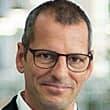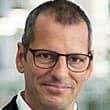A practical guide to creating sustainable HVAC systems that optimize energy efficiency and environmental performance in modern buildings.
A practical guide to creating sustainable HVAC systems that optimize energy efficiency and environmental performance in modern buildings.
This comprehensive course explores the critical role of heating and cooling decarbonization in meeting global greenhouse gas emission reduction targets. Participants will gain a thorough understanding of sustainable heating and cooling technologies, from demand reduction strategies to renewable heat sources and innovative storage solutions. The course covers key concepts such as exergy, insulation, and temperature levels, and delves into various sustainable heat sources including solar, geothermal, and waste heat recovery. Students will learn about heat conversion and storage technologies, system design principles, and the economics of sustainable heating systems. By the end of the course, learners will be able to identify and design technically feasible and cost-efficient sustainable heating and cooling solutions for various scenarios. This course is ideal for technical professionals and policymakers seeking to contribute to the adoption and successful operation of sustainable heating and cooling systems.
Instructors:
English
English
What you'll learn
Define developments in heating/cooling demand and passive heating/cooling
Demonstrate concepts of conduction, convection, exergy, and solar radiation
Apply and quantify various sources of sustainable heat
Identify technologies for conversion and storage of heat
Apply and quantify constraints and driving mechanisms in heat supply systems
Apply and quantify economics of heating systems
Skills you'll gain
This course includes:
PreRecorded video
Graded assignments, exams
Access on Mobile, Tablet, Desktop
Limited Access access
Shareable certificate
Closed caption
Get a Completion Certificate
Share your certificate with prospective employers and your professional network on LinkedIn.
Created by
Provided by

Top companies offer this course to their employees
Top companies provide this course to enhance their employees' skills, ensuring they excel in handling complex projects and drive organizational success.





There are 6 modules in this course
This course provides a comprehensive overview of sustainable heating and cooling systems, crucial for decarbonizing the energy sector. The curriculum is structured into six weeks, each focusing on different aspects of sustainable heat technologies and systems. Week 1 introduces the importance of heat in the energy transition and the challenges of decarbonization. Week 2 explores various sustainable heat sources, including solar, geothermal, and waste heat recovery. Week 3 covers heat conversion and storage technologies, focusing on heat pumps and different storage methods. Week 4 delves into heat supply systems, discussing temperature levels, district heating networks, and system design principles. Week 5 addresses the economics and adoption challenges of sustainable heating systems, including business case development and policy considerations. The final week provides real-world examples and guides students in designing their own sustainable heating and cooling system. Throughout the course, students will develop skills in quantifying heat demand, identifying suitable sustainable sources, and designing integrated heating/cooling systems.
Introduction
Module 1
Sustainable sources of heat
Module 2
Conversion and storage
Module 3
Heat supply systems
Module 4
Heat economics and adoption
Module 5
Examples and your first own design
Module 6
Fee Structure
Instructors

1 Course
Leading Expert in Underground Thermal Energy Storage and Sustainable Heating
Martin Bloemendal serves as an assistant professor at TU Delft's Faculty of Civil Engineering and Geosciences while also working as a researcher at KWR water research. His expertise focuses on underground thermal energy storage (ATES), heat pump systems, and geothermal energy applications. His vision centers on maximizing the potential of subsurface renewable energy sources while ensuring their availability for future generations. Through his dual position at KWR and TU Delft, he develops innovative concepts at the university and implements them in industry pilot projects, effectively bridging the gap between academic research and practical applications. His work encompasses teaching various courses across different faculties while conducting research to advance ATES and Borehole Heat Exchanger (BHE) technologies. His research approach combines technical innovation with practical implementation, focusing on sustainable solutions for cooling and heating buildings through underground thermal energy storage systems.

2 Courses
Leading Expert in Climate Design and Sustainable Architecture
Andy van den Dobbelsteen serves as Full Professor of Climate Design & Sustainability at TU Delft's Faculty of Architecture and the Built Environment, and Principal Investigator for the Amsterdam Institute for Advanced Metropolitan Solutions. His research focuses on sustainable buildings, energy systems, and climate adaptation, with significant contributions to urban sustainability and climate-responsive architecture. He has led numerous major research projects including City-zen (energy transition), Climate Proof Cities (climate adaptation), and Better Airport Regions (circularity). His work has garnered over 7,200 citations, with groundbreaking research in thermal comfort, daylight performance, and sustainable energy systems. As chair of NL Greenlabel's scientific advisory board and Dutch Green Building Council board member, he actively shapes sustainability policies while advising the government on energy transition. His achievements were recognized with the 2019 KIVI Academic Society Award for research of major social importance. His approach emphasizes utilizing local renewable resources and translating research into practical solutions for sustainable urban development, driven by his commitment to preserving the environment for future generations.
Testimonials
Testimonials and success stories are a testament to the quality of this program and its impact on your career and learning journey. Be the first to help others make an informed decision by sharing your review of the course.
Frequently asked questions
Below are some of the most commonly asked questions about this course. We aim to provide clear and concise answers to help you better understand the course content, structure, and any other relevant information. If you have any additional questions or if your question is not listed here, please don't hesitate to reach out to our support team for further assistance.



